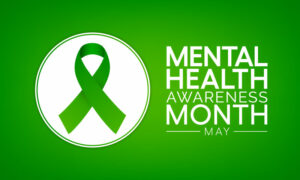Even with an unlimited number of beverage choices, such as sodas, teas, coffees, juices, shakes and smoothies, there is nothing quite as refreshing as a tall glass of water. Water is cost-free and has no calories or added ingredients. Water makes up about 60 percent of our body weight and every organ in our body needs it. Blood is mostly water, and your muscles, lungs, and brain all contain large quantities of water. Water regulates body temperature and provides the means for nutrients to travel to your organs and tissues. It also transports oxygen to your cells, removes waste, and protects your joints and organs. Water suppresses the appetite naturally and it may even help the body metabolize stored fat, thereby aiding with weight loss.
Since we lose about 2-3 quarts of water per day through our bodily function, we must continuously drink water. It is a fact that many of us are unknowingly constantly dehydrated and we drink water only when we are thirsty. Thirst is a poor indicator of dehydration and by the time someone becomes thirsty, they are already dehydrated. Mild dehydration can decrease one’s energy level and mental functioning and increase stress on the body. Symptoms of mild dehydration include chronic pain in joints and muscles, lower back pain, headaches, and constipation. A strong odor in your urine, along with a yellow or amber color, may indicate that you may not be getting enough water.
So, how much water should you drink each day? Many of us have heard that we need 8 glasses of water every day. Even though this may be a good guide, the Institute of Medicine recommends we need even more. According to the recommendations, men should consume 13 eight-ounce cups and women consume 9 eight-ounce cups of water daily. Also, your actual water requirement may depend on a number of factors, including exercise, environment (e.g. hot or dry climates), if you are pregnant or breastfeeding, and any illnesses that you may have. The good thing is that many foods we eat contain water, especially fruits, and vegetables. Also, beverages such as milk and juice are composed mostly of water. Even caffeinated beverages such as coffee, tea, and soda can contribute, but these may contain added calories, fat, and chemicals and should not be a major portion of your daily total fluid intake. Water is still your best bet because it’s calorie-free, inexpensive, and readily available. Here are some tips that can help increase your water intake:
- Drink a glass of water with each meal and between each meal.
- Drink water before, during, and after exercise.
- Drink twice as much as it takes to quench your thirst.
- Fill a pitcher or jug with your daily requirement of water and keep it on your desk at work, or at home. As you drink down the water, you know that you are on the right path to drinking enough water.
So whether you choose bottled water or tap water, make sure that you drink plenty of water every day!




